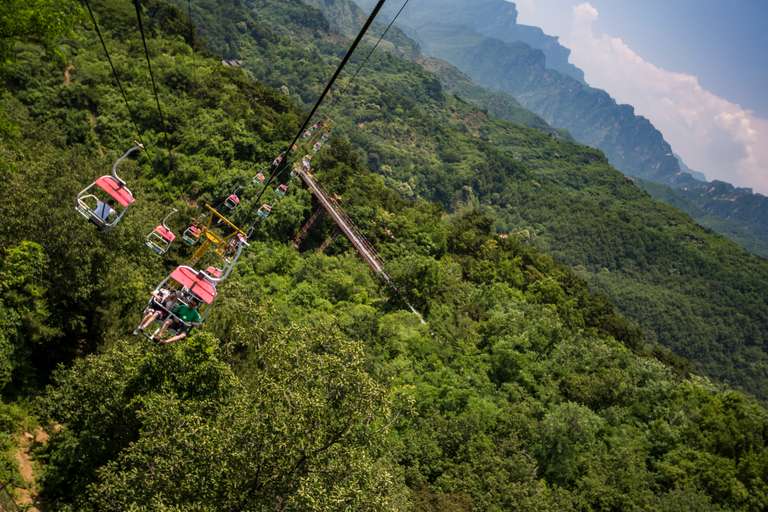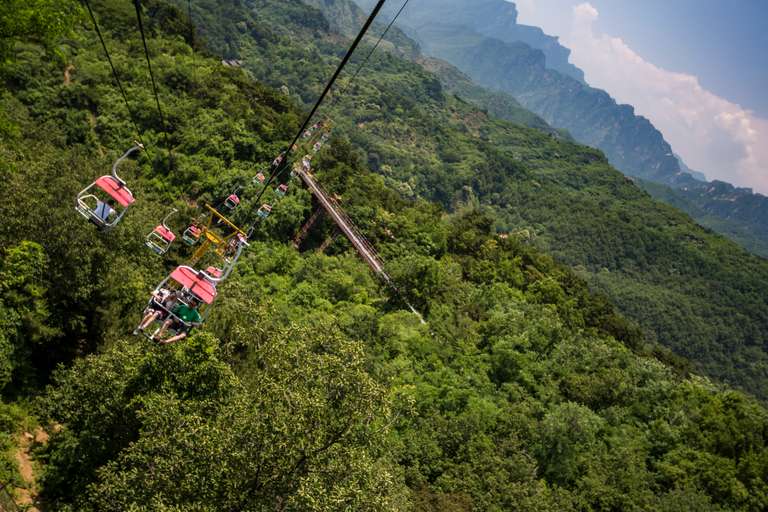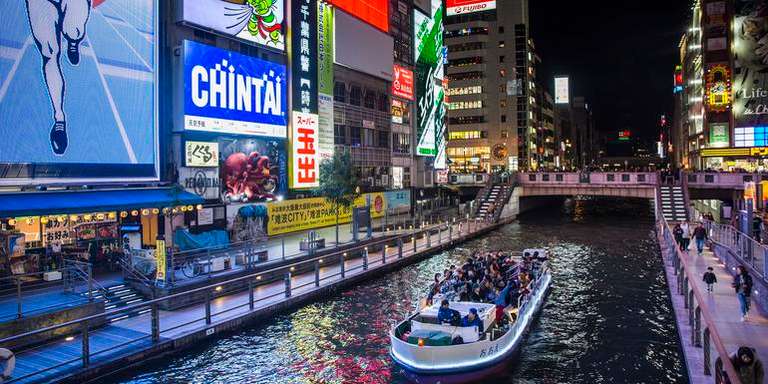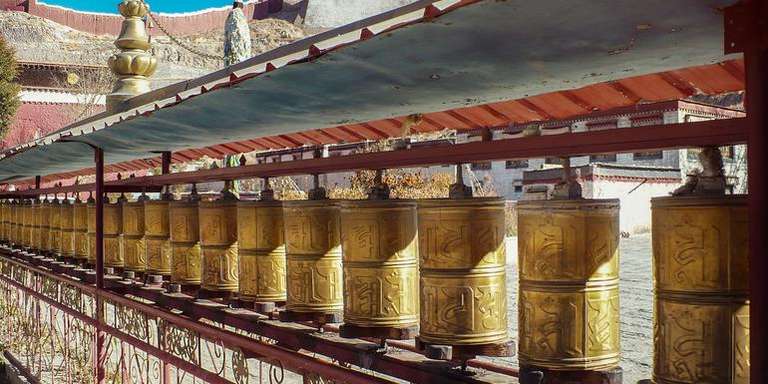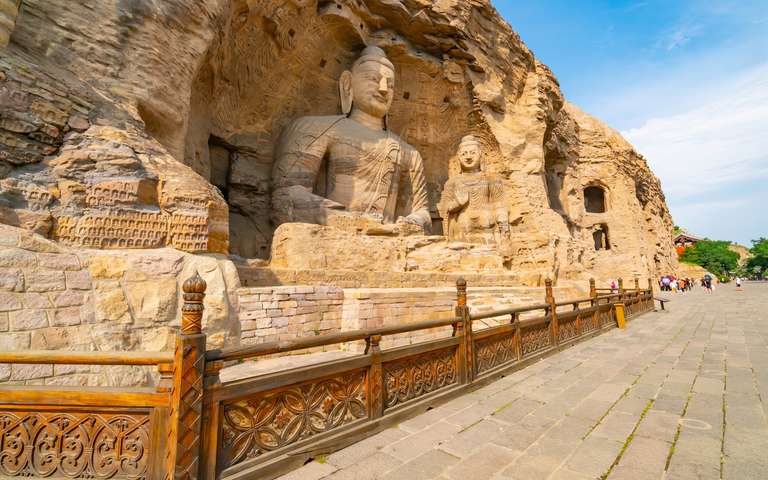Visit China: The Ultimate Travel Guide

- Yuke
- From
- Yuke
- From
- Jari Russell
- From Austria
- Olivia Parisley
- From Estonia
How to get to China
China is easy to get to from many parts of the globe.
- By air
China is accessible via flights from numerous countries. From places like the USA, Canada, Japan, and South Korea you can fly to many popular destinations such as Beijing, Shanghai, Guangzhou and Chengdu.
Travelers from the United Kingdom can fly non-stop from airports in England and Scotland to Beijing, Shanghai, Guangzhou, Qingdao, and many other cities. Air carriers include British Airways and Lufthansa.
- By land
China is bordered by 14 countries including Russia, Mongolia and Nepal. You can visit China from either of these three countries by road or train, including via the Trans-Siberian Railway, the longest railway in the world. It links Russia with China and has connecting branches into Mongolia.
- By sea
China has a Pacific coastline that extends for more than 1,600 kilometres. Its ports can be reached via ferry services from several countries including Japan, South Korea and Taiwan. Cruise ships also depart from Alaska, Sydney and London among other places.
Top 5 places to visit in China

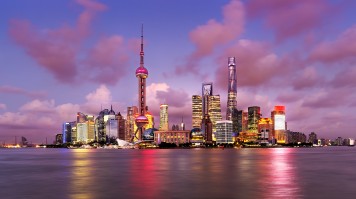


Below are our picks of the 5 best places to visit in China.
- Beijing: This enormous city has been the country's capital for more than 800 years and is filled with many exciting sightseeing opportunities. Highlights include Tiananmen Square, Sanlitun district's neon-lit nightlife and the Forbidden City — the largest palace complex in the world.
- Shanghai: The country’s largest city is a sightseeing wonderland with old temples, traditional pagodas, and renowned art galleries and museums. Highlights include The Bund, the Jade Buddha Temple and the Oriental Pearl Tower.
- Xi'an: Known as the cradle of Chinese civilization, this central Chinese city was the capital of 13 imperial dynasties. Visit this city to see ancient monuments and fortifications that were a testament to imperial might and power.
- The Great Wall of China: One of the most extraordinary feats of engineering in history, the Great Wall of China is a colossal fortified structure that extends for more than 21,000 kilometers. There are several popular sections to visit from including the beautifully restored Mutianyu, the popular Badaling and the less-crowded Jiankou.
- The Terracotta Army: This life-size army of terracotta soldiers and horses was created more than 2,000 years ago to protect an ancient emperor in his afterlife and is truly a site to behold. The army is located in Emperor Qinshihuang's Mausoleum Site Museum near Xi'an city.
Budget for China

In many ways, China is a country of contrasts and can be explored via high-class luxury or low-budget backpacking. How much money you take depends on your own travel style, preferences and means.
- Accommodation: Accommodation will most likely take up the biggest slice of your budget. You can get beds in hostels, dorms and other cheap accommodation for as little as USD 4 per night. Mid-range hotels will set you back USD 55 to USD 79 per night. If your pockets are deep enough, expect to pay upwards of USD 170 per night for luxury accommodation.
- Transportation: Buses and subways are cheap and convenient with the latter being the fastest way to get around busy cities such as Beijing. Bus fares in the capital cost anywhere between one and five yuan while subway prices start at three yuan. Taxis are more expensive especially when the meter is ticking during traffic jams.
- Eating: On average, food will cost you around USD 20 per day. Although the prices for meals can vary, breakfasts are usually a bit cheaper than lunch or dinner.
How to travel inside China


China has an efficient and modern transportation network with good road, rail and air connections between towns and cities. However, local transportation can be unreliable except in the big cities with their dependable metro systems. Bicycle renting is popular in many places.
One of the best ways to get around if you are traveling long distances is via the high-speed rail network. Not only is the service fast, comfortable and reasonably priced but the journeys tend to be more scenic than those by road.
There are also extensive bus networks between cities operating buses of differing comfort levels. Some buses are relatively new while others have been in use for around 20 years, especially those in rural areas. Sleeper buses are available but with narrow berths that don’t recline fully, they're an uncomfortable option.
Another way to get around is by rental car, but foreign nationals are not permitted to drive on the country's roads, so be aware that your car will come with a driver.
China is a very big country. Depending on how you are planning to travel and where you want to visit, the length of your trip can vary. Assuming you want to see all the best sites including the Great Wall of China, Beijing, Shanghai and the Sichuan province, it would be a good idea to give yourself at least two to three weeks.
Best time to visit China
The best time to visit China depends entirely on what you want to do when you arrive. In terms of the weather, the best months to visit are during spring (April to May) and autumn (September to October) when conditions are at their mildest.
However, if you are visiting remote mountainous regions it’s best to travel between June and the end of August when the warmer temperatures make exploring them more comfortable.
If you don't mind it cold and wet, November to early March are good months to visit. This is the low tourist season which means attractions are less crowded and you can save money on transport and accommodation. For winter sports and ski slopes blanketed with crisp, white snow make your travel plans for December to February.
To coincide your visit with lively and colorful parties, the best time to travel to China is late January or early February for Chinese New Year celebrations, between early September and early October for the Mid-Autumn Festival, and late May or early June for the Dragon Boat Festival.
Visa requirements

All non-Chinese nationals must obtain a visa to enter mainland China. If you are from the US, UK or anywhere else in Europe you have to complete an application attached with a recent color photograph. Then submit them to your local Chinese embassy or consulate. You will need your original passport which must be valid for at least six months.
Chinese customs authorities recommend applying for your visa 30 to 90 days before your intended date of travel. Visas are valid for three months from the date of application and permit the holder to a one-month stay from the date of entrance. Extensions can be applied for at the Public Security Office in any Chinese city.
Some countries have mutual visa-free agreements with China including Brunei, Japan, Mauritius, Fiji and Ecuador. British nationals can travel to Macao and Hong Kong without a visa.
Safety in China

China is a relatively safe and non-violent country with a low crime rate. In general, it is safe for solo women travelers to explore. That being said, we are including a few safety tips for traveling in China:
- Take measures to avoid pickpocketing and theft. Keep handbags shut, put wallets in your front pocket and carry limited amounts of cash with you. Don’t stash valuables like cameras and iPads behind you in a backpack.
- Beware of scams in popular tourist areas such as the 'tea tasting' scam. This involves being invited to a bar for tea tasting where you’re charged an exorbitant fee.
- Only take registered taxi cabs. Ask the driver to estimate the fare in advance and make sure the meter is used.
- Always use caution when crossing streets. China has one of the world's highest road fatality rates, and pedestrians do not have right of way.
Important Numbers
| Police | 110 |
| Fire | 119 |
| Ambulance | 120 |
| Traffic Accidents | 122 |
You can visit the China page from the US embassy website for more information.
China travel tips: Last-minute checklist
- Bring a photocopy of your passport and visa and keep them separately from your originals.
- Carry a plug converter for China (the country uses a 220 Volt 50 Hz AC electrical supply).
- Pack a pollution mask if you’re traveling to the big cities.
- Don't bring too much cash. ATMs are everywhere.
- Purchase a Mandarin phrasebook.
- Make sure you have travel insurance.

So, what are you waiting for?
Of course, you can visit China and wing it by creating your itinerary as you go along. However, doing so means you might not leave enough time to experience everything you wanted to. Avoid those vacation blues by researching your destination and planning ahead. Use these China travel tips to help you make the most of your adventure through this fascinating country.


